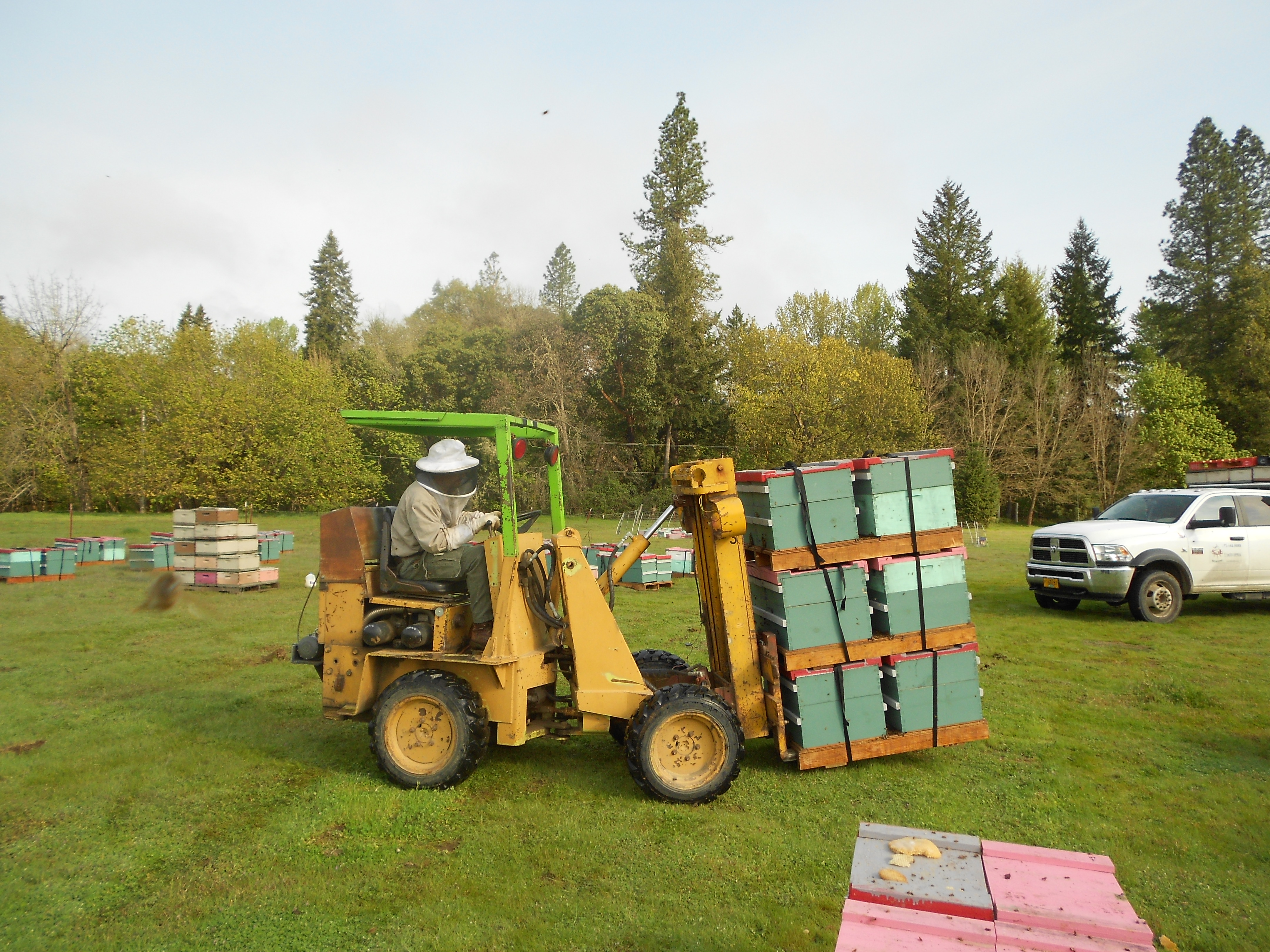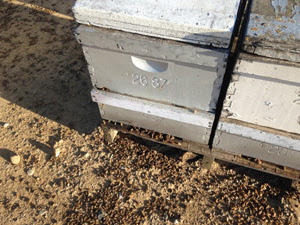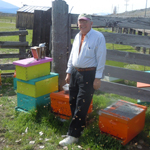Contributed by Dr. Dewey Caron
It was great news to hear of the State Tax Court victory for bees in Jackson County. SOBA president John Jacob, whose apiary was the one in question on LeRoy & Nancy Whedes’ Rogue River property, called the decision “…. good for beekeepers, pollinators, landowners, and Oregon’s agricultural economy. Further, we now have at least two legal precedents in Oregon that demonstrate beekeeping is an acceptable farm use.”
One of the arguments John and I used when we testified for the bees in State Tax Court was that John’s bees need a “time out”; a break from commercial agriculture and the exposure to pesticide used by farmers. Jackson County argued that the land could be put to better use than as bee pasture. I pointed out that turning this pasture into cropland would likely mean increased pesticide usage and increased danger to the bees. This argument helped win the day.
I was an “expert” witness to a pesticide damage to bees back East shortly before moving to Oregon. In that trial, the apple grower had clearly violated the law by applying a pesticide highly toxic to bees during apple bloom. Still we had an uphill battle to convince the judge that the bees have value, something we needed also do in the OR tax court case. That eastern case also was decided in favor of the beekeeper but the damages did not compensate for the loss for the rest of the season, merely replacement of the lost bees.
That beekeeper was fortunate as too few beekeepers receive anything when bees are excluded from clean pasture sites or are killed by a pesticide, often applied by a landowner or farmer besides the one providing the apiary space. In both March and April SOBA articles, I discussed bees and pesticide kills. In the April article, I discussed the loss of bees, including some Or bees, towards the end of almond bloom. Some 80,000 total colonies were affected in that poisoning incident; most colonies were not killed but many lost a generation of brood rearing when an Insect Growth Regulator (IGR) was added to the tank when a fungicide was applied. None of those beekeepers received a penny in compensation.
In Oregon I am hopeful that we are making some progress in helping bees both avoid sudden, pesticide-related losses and in doing something to help the beekeeper. The OR Governor’s Task Force on Bee Health completed their report (full report due out shortly) and now, hopefully, the OR legislature will enact on the recommendations and do some things to help the bees.
We are also fortunate that the OR Department Agriculture, as result of a mysterious June bee loss in the Cascades foothills (I will have article on this investigation in upcoming Bee Culture magazine) and two springs with bumble bee massacres at Linden tree blooms, has developed a pesticide screen in their pesticide lab in Portland to quickly analyze suspect kills to OR colonies. Additionally, ODA had a workshop for their pesticide investigators in Salem in August. They are making progress.
I was struck by follow up to beekeepers reporting a pesticide kill in Switzerland compared to follow up to kills U.S. beekeepers experience. Swiss apple growers had applied a fungicide toward the end of apple bloom that ended up killing several hundred bee colonies The Swiss authorities promptly took samples and then traced backwards. The offending pesticide, Fipronil, had been packed for U.S. sale in Israel using the same equipment (apparently without proper cleaning) that was then used to fill the fungicide containers subsequently shipped to Switzerland. If only U.S. incidents were so thoroughly investigated.
Whatever the next year brings, I hope you don’t have such a sudden bee loss in southern Oregon due to a pesticide. Now, in our “down” time, as we reflect on this past year and look toward the coming bee season, take a page from John. If you do suspect a loss don’t simply take it lying down. Report losses to
- the Pollination Stewardship Council www.pollinatorstewardship.org, they did follow up on the almond losses this past spring,
- EPA (Environmental Protection agency), our federal watchdog agency charged with protecting non-target beneficials like pollinating bees (beekill@epa.gov),
- the National Pesticide Council’s Ecological Pesticide Incident Reporting at Oregon state (npic@ace.orst.edu)
- and to Oregon Department of Agriculture (www.oregon.gov/oda/programs/Pesticides/).
As responsible bee stewards, we need speak up for the bees. They deserve nothing less.
Dr. Caron taught at the University of Delaware for 40+ years and holds an Affiliate position (volunteer) with the bee unit of the Horticulture Dept at Oregon State University. He is active in Eastern and Western Apiculture societies and national bee groups. He is the Vice President of the Oregon State Beekeepers’ Association and served as President in 2010. He serves on the board of the Western Apiculture Society and is an honored speaker at SOBA whenever he is available.



